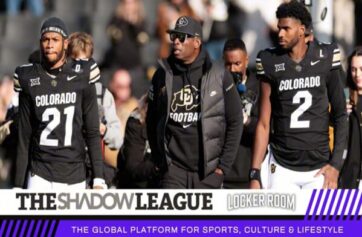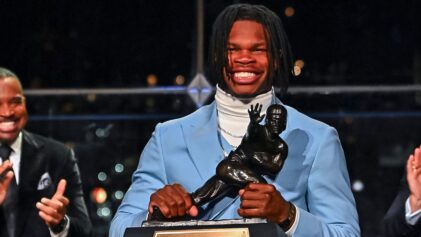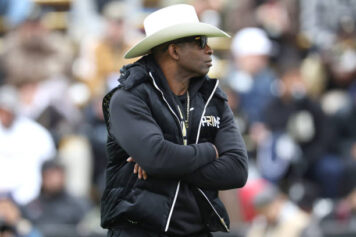Hip-hop was on fire in 1994, with debut albums by future legends like Nas, The Notorious B.I.G., and Outkast. Another album came out late that year, “PrimeTime,” by football and baseball star turned rap artist Deion Sanders. Led by the first single, “Must Be The Money,” Sanders’ pivot into the music industry supposedly came through an unlikely source: Marion “Suge” Knight, then CEO of Death Row Records.
“When Prime wanted to be a rapper, I spent over half a million dollars of my own money,” Suge Knight told Nick Cannon from a jail phone call on his podcast, “The Daily Cannon.” “I put guys in the studio, I paid Dallas Austin, I did all these songs, did everything.
“Then one day he [Deion’s agent] came to me and said, ‘Well, Prime’s deal’s with Nike and Death Row is a Black-owned company, and we don’t really want to deal with a Black-owned company, even though you paid for everything. We signed to you, put us on the Interscope label brand.”
Welcome To Death Row? Or Not…
However, in 1994, Sanders reportedly inked a deal with MC Hammer’s Bust It Records, which worked with Capitol Records. In December of that year, his debut album “Prime Time” was released. Where Suge Knight was involved is not readily known, but the word embellishment comes to mind.
Death Row Records was marketed and distributed through Interscope. Jimmy Iovine was the co-founder of the label that helped cultivate Dr. Dre, Snoop Dogg, and Tupac Shakur, among others.
Still, Suge Knight advanced the story.
“So I go to Jimmy (Iovine), say, ‘Look, I paid for everything,” Knight continued. “‘The contract’s with me, but could you put him out on Interscope.’ They’re like, ‘Oh yeah, (I’ll) do that—anything for you, Mr. Knight.’ And so if Prime performing somewhere, I’m taking a private plane to make sure everything’s good. But not one day did anybody give me a dollar back.”
The revelation is the first time the world has heard anything about Knight’s supposed involvement in Sanders’ short-lived rap career. The logic of not wanting to work with a Black-owned company goes against his Coach Prime image that began at Jackson State University, an HBCU.
Must Be The Money?
Knight describes his deal with Sanders as a bad investment, and with “Must Be The Money” still generating revenue as a commercial jingle for companies like Aflac, Knight makes the case that he got played by all parties involved.
“He was only signed to Death Row. ‘Must Be The Money’ that they play on commercials, and all that s**t, those checks should have been coming this way,” Knight proclaimed.
Coach Prime is looked at as a branding genius and a fair-dealing leader of young men. Suge Knight is now poking holes in that above-board image. However, aside from him being in prison, the facts don’t add up as Knight is relaying them.



